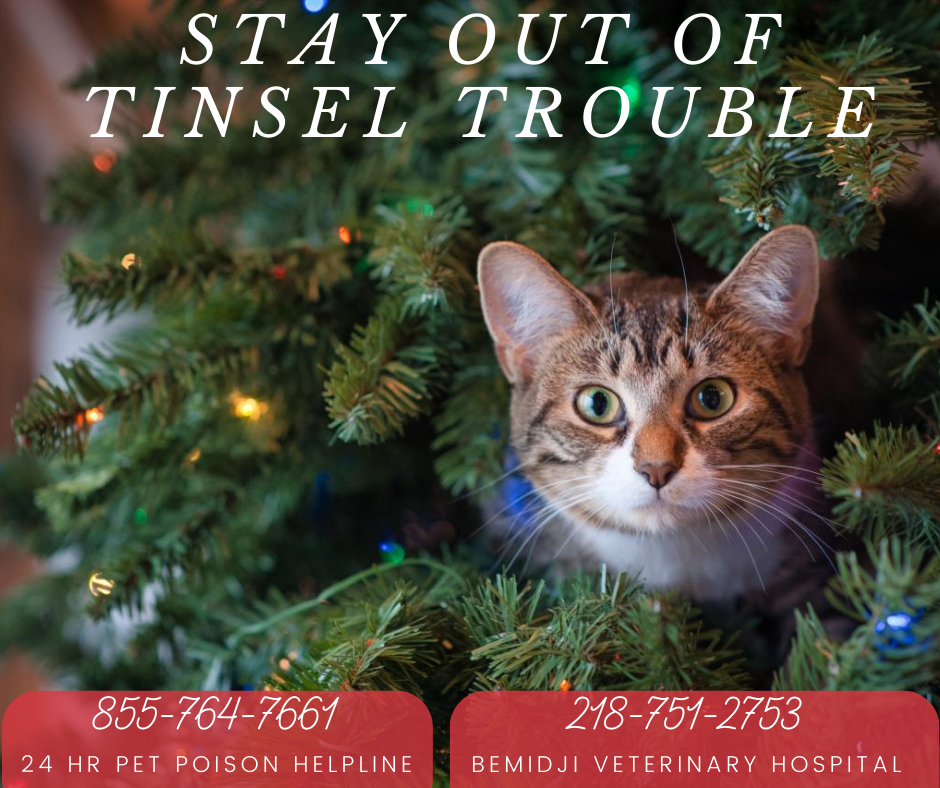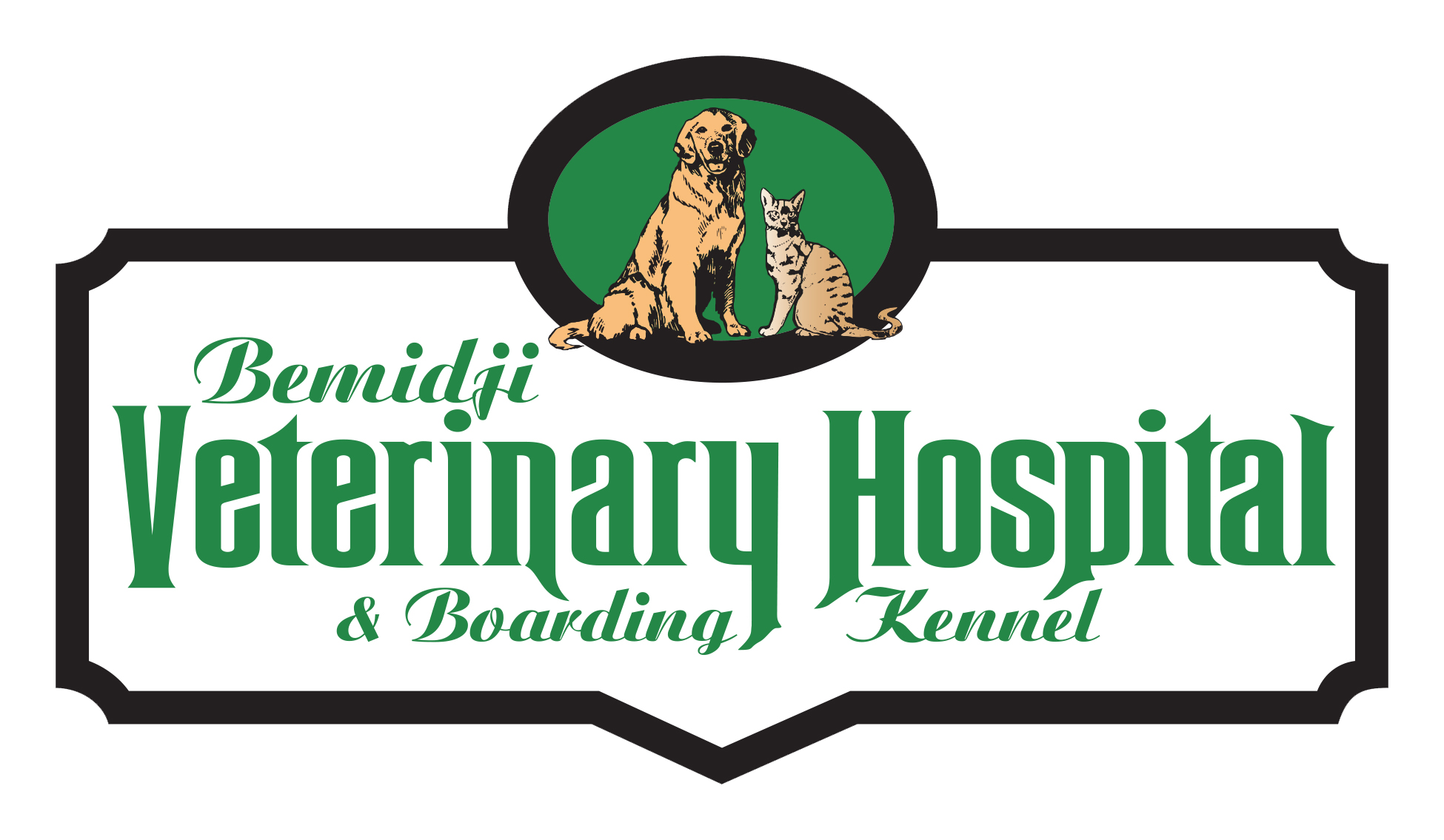
The holidays are a great time to get festive, decorate, and welcome family into your home. It’s usually not a time for holiday pet safety to be on your mind. However, taking a few preventive measures before and during the holidays can help to ensure a happy and safe holiday season for your pet.
Here’s a short list of some things to consider as you prepare for your holiday gatherings:
Be a Considerate Host:
Pets can sometimes become overexcited, confused, or frightened by the onslaught of holiday guests. You can help by keeping your pet in a quiet part of the house and making sure he/she has a safe retreat from children and well-intentioned visitors. Keep your pet’s bed or kennel in a safe place and be sure guests know that it’s off-limits.
Even if your pet is comfortable around guests, make sure you watch them closely, especially when people are entering or leaving your home. While you’re welcoming hungry guests and collecting coats, a four-legged family member may make a break for it out the door and become lost. You can always stop in our office to scan your pet’s microchip to make sure that it is up to date, and that they have the proper identification, in case they get lost.
Holiday Baking Dos and Don’ts:
Many of the items we keep in our homes can be toxic to pets. Chocolate consumption is a serious pet poisoning risk, especially for dogs. Chocolate contains a chemical called theobromine, which can be fatally toxic to dogs if they eat enough of it. Furthermore, the types of chocolate we find in our kitchens at holiday times, like bittersweet or baking chocolate, contain far more theobromine than the average Hershey bar. If your dog gets into some chocolate, be sure to call your veterinarian or the Animal Poison Control Center immediately to see if your pet needs medical attention. Other baked goods should also be off limits to pets, as many contain high-fat content, and artificial sweeteners that are dangerous if consumed.
You can still safely give treats to your pets during the holidays. Rather than feeding them table scraps of rich food, feed them treats made specifically for dogs/cats or raw veggies like carrots or broccoli, cooked unseasoned and skinless white meat turkey, or plain pumpkin (not the seasoned pie filling).
Decorate With Care:
As you deck the halls, trim the tree, or light the menorah, keep in mind that pets don’t understand the words “breakable,” “family heirloom,” or “sentimental value.” Rambunctious dogs, cats, and ferrets have been known to topple many an ornament and knick-knack, and sometimes even whole Christmas trees. You can help prevent breaks and mishaps by keeping weighty ornaments close to the floor, and valuable ornaments out of reach from curious mouths, noses, and wagging tails. Keep knick-knacks on shelves inaccessible to your animal companions. Also, make sure Christmas trees are tethered to a nearby wall or window frame if you have ferrets or cats fond of climbing!
Long, skinny pieces of plastic or string can be very dangerous to our furry friends. Cats and kittens seem to find shiny tinsel especially appealing. If eaten, thin pieces of string or tinsel can cause the intestines to bunch up, and can even cut through the intestinal wall! Either could be fatal and would certainly mean an unwanted trip to the veterinarian’s office.
When you leave the house:
Unplug decorations when you’re not around. Cats, dogs and other pets are often tempted to chew on lights or electrical cords. Make sure to take out the trash, and put holiday baking supplies in the cupboards to avoid any unwanted scavaging from our furry friends while we are away.
Travel in style (and safely):
If you are taking your pets with you on your Holiday outings, make sure to take extra precautions to ensure that they are safe, secure, and welcome. Interstate and international travel regulations require any pet you bring with you to have a health certificate from your veterinarian – even if you are traveling by car. Learn the requirements for any states you will visit or pass through ahead of time, and schedule an appointment with your veterinarian to get the needed certificate within the timeframes required by those states. Even Santa’s reindeer need to get health certificates for their annual flight around the world.
Pets in vehicles should always be safely restrained and should never be left alone in the car in any weather. Proper restraint means using a secure harness or a carrier, placed in a location clear of airbags.
If you’re traveling by air and considering bringing your pet with you, talk with your veterinarian first. Air travel can put some pets at risk, especially short-nosed dogs. Your veterinarian is the best person to advise you regarding your own pet’s ability to travel.
Pack for your pet as well as yourself if you’re going to travel together. In addition to your pet’s food and medications, this includes bringing copies of their medical records, information to help identify your pet if it becomes lost, first aid supplies, and other items.
Boarding your dog while you travel? Talk with your veterinarian to find out how best to protect your pet from Kennel Cough and other contagious diseases, and to make sure your pet is up-to-date on vaccines.
We want you, and your pets to have a Happy and Safe Holiday Season! We are always just a phone call away and hope that some of our holiday tips can help you avoid an emergency trip to see us so you can enjoy more of your festivities and family.
What's Next
Call us or schedule an appointment online.
Meet with a doctor for an initial exam.
Put a plan together for your pet.


